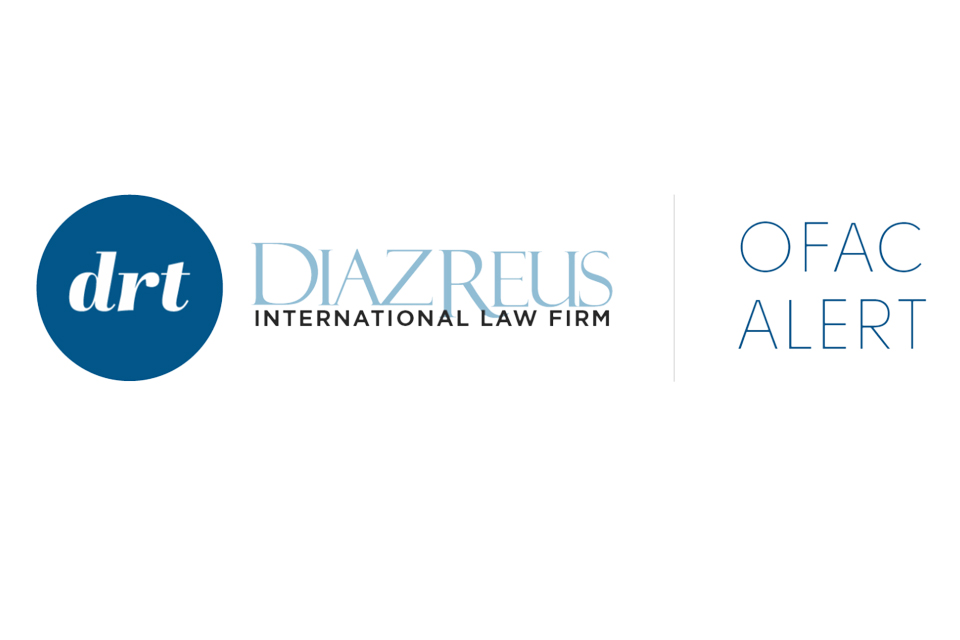On February 2, 2021, the U.S. Treasury Department’s Office of Foreign Assets Control (“OFAC”) issued General License 30A extending the authorizations in OFAC’s regulations for certain transactions involving air and maritime transportation in Venezuela. More specifically, General License 30A amended OFAC’s regulations to authorize transactions involving Venezuela’s maritime authority, Instituto Nacional de los Espacios Acuaticos (“INEA”), that are ordinarily incident and necessary to operations or use of ports and airports in Venezuela.
INEA was designated by OFAC in the List of Specially Designated National (“SDN List”) on January 19, 2021 for having “ties to a network attempting to evade United States sanctions on Venezuela’s oil sector.” Accordingly, if they are not authorized by a general or specific license issued by OFAC, U.S. persons or foreigners that conduct business in or with the U.S., U.S. persons, or using U.S.-origin goods or services are prohibited from engaging in transactions with INEA or any entity in which INEA owns, directly or indirectly, a 50 percent or greater interest.
DRT Commentary
Who Should Comply with OFAC Sanctions?
U.S. persons must comply with OFAC Sanctions regardless of where they are located. Foreign persons conducting business in or with the U.S., with U.S. persons, or using U.S. origin goods or services must also comply, because foreign persons that conspire to violate, or cause a violation of OFAC Sanctions, may face negative consequences.
In fact, OFAC has imposed civil penalties upon foreign persons for, among other activities: (i) purchasing U.S. origin goods with the specific intent of reexporting, transferring, or selling these goods to a person, country, or region subject to OFAC sanctions; (ii) utilizing the U.S. financial system, or processing payments to or through U.S. financial institutions, for commercial transactions involving OFAC sanctioned persons or countries; (iii) using U.S. origin software, or technology and telecommunications hardware located in the U.S.
What are the Consequences of Violating OFAC Sanctions?
U.S. and foreign persons violating OFAC Sanctions may face significant civil penalties, and criminal penalties for willful violations. OFAC may also add the person or entity to the SDN List as secondary sanction.
Negative legal consequences are not limited to organizations because the U.S. Government may also target individuals—particularly in supervisory, managerial, or executive-level positions— who have caused or facilitated violations. These individuals may also face migratory sanctions, including future ineligibility to receive a U.S. visa or the revocation of any existing U.S. visa. Additionally, U.S. and foreign persons violating OFAC Sanctions may face collateral consequences, including the loss of international banking privileges, as well as the financial costs associated to defending from legal actions, conducting internal audits and investigations, and enhancing their compliance programs. An organization’s customers and business partners may prefer to deal with other organizations that are not involved in OFAC investigations.
What Can Be Done to Prevent Violations of OFAC Sanctions?
Conduct an OFAC review of any transaction involving sanctioned persons or countries to confirm whether you need OFAC’s authorization. If necessary, request OFAC’s specific license or interpretative guidance before moving forward with the transaction.
Organizations can prevent, detect, and react appropriately to violations of OFAC Sanctions by designing and implementing a Sanctions Compliance Program (“SCP”). Having an effective SCP in place is also a significant mitigating factor that OFAC will consider when deciding whether to impose sanctions based on an apparent violation of its regulations, or for calculating the appropriate penalty.
Info: Michael Diaz, Jr., Javier Coronado
Tel: +1 (305) 375-9220
mdiaz@diazreus.com, jcoronado@diazreus.com














